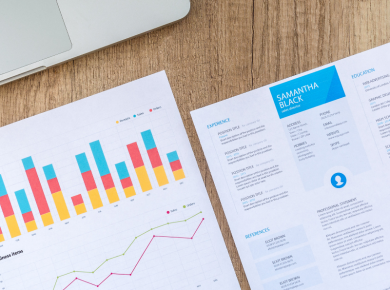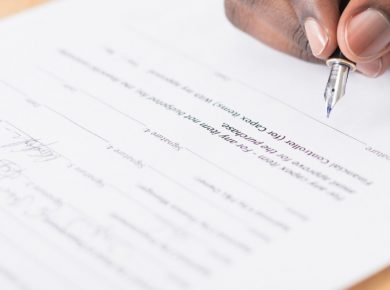A wise man once said “you only fear what you don’t know”. One fundamental keys to killing fear is knowledge.
It is said that if you fail to plan, you have planned to fail already. This saying is true even when preparing for interview. If you fail to plan, you will not be able to face your fears with confidence.
So many people have missed great job opportunities because of some level of fear and lack of confidence they exhibited during the interview session. They missed the opportunity not necessarily because they were not skilled, but because of their inability to face their fears.
That’s why I’ve put together this short guide to give you the best interview tips on how to prepare so that you can ace your interview.
Interview Preparation
You may be wondering why it is necessary to prepare for a job interview. Why can’t your resume just speak for you? As arbitrary and tedious as preparing for a job interview can be, you absolutely must do it. Preparing for your job interviews gives you the resources and confidence to let your true abilities and professional values shine through, and tell shows the interviewer that you are a serious and thoughtful candidate.
So, what does preparation for the job interview entail?
- Interview Research:
The most vital part of preparing for a job interview is the research that you can do about your potential employer. Internet searches and library research can help you understand the organization, mission and key executives of your future employer. It will also help you discover key information which you can which can then focus your experiences (and resume) to present a professional narrative rich in relevant information, points and achievements. Interview research can also help you to formulate specific questions you can ask to demonstrate your knowledge and interest in the organization.
- Interview Questions:
The research will help you think about any questions you may have about the company or position that you will likely have the opportunity to ask at the end of the interview. Examining examples of interview questions and preparing your own answers may seem like a lot of work, but it’s an extremely important part of preparing for the job interview. You simply cannot “just escape”. What happens if the interviewer asks you a question about something negative (low college grade, frequent job change) that he sees in your resume? You want to be able to assure them quickly and skillfully that your apparent fault will have no impact on their organization or your work. Preparing for positive questions (what are your three greatest strengths?) is just as important as preparing yourself for negative questions. Ultimately, you want to be able to show your interviewer that you are in control of your situation and that you know where you are in a professional manner.
- Interview Preparation Checklist
The final part of interview preparation is to create a checklist to prepare and think about things like… How will you arrive to your interview? What kind of security does the building have? What should you wear? By eliminating these logistical problems before your interview, you will be able to arrive on time, relaxed and ready to talk about work. By comprehensively preparing for an interview, you are doing yourself a favor and getting yourself one step closer to the job of your dreams.
Interview Tips
The following tips will help you make a very good impression, thus affording you the opportunity of having your dream job.
- Keep a copy of your resume with you
This resume is not necessarily for the hiring manager, as he / she should already have a copy. This is so you can quickly reference your skills, training and education. You also have a professional and well-prepared appearance when you have a resume to follow.
- Dress Professional: No matter the Interview
Professionalism is the key to making a good impression. Your appearance is a good starting point. Always opt for a dress or a suit for most high-paying jobs and executive positions. Plan your clothing ahead of time and ensure that you are properly groomed.
- Arrive 10 minutes Earlier than the time for the interview
All experts recommend arriving early. Early is better than late. Ten minutes is an ideal time. You are ready and wait for the hiring manager to call you earlier than expected.
- Do not chew gum or suck candy
That seems like common sense. It’s easier to talk when your mouth is empty. So, do not chew gum or suck a hard candy. That said, some people (including myself) find sucking a soothing hard candy; do not do it!
- Ask Questions Carefully
You always want to ask questions during interviews to show your interest, the fact that you were paying attention, and that you have done your research on the organization. It is important that you ask these questions carefully. Do not sound misinformed. Base your questions on the information already provided during the interview (shows that you were listening and looking for additional information).
- Do not worry about other interviewees
It is common for a company to hold regular interviews that day. In the lobby or waiting room, two other interviewees may be waiting for their turn. It is natural to gauge their appearance, to question their experience, and so on. But, that does not concern you; focus only on your meeting and preparation.
- Take a deep breath
Interviews can be stressful. You want to do well, but it is natural to assume the worst and think of a million scenarios. Before you go in, take a deep breath and remember that all you can do is do your best.
- Send a thank you note
Within 24 hours of the job interview, a thank you note must be submitted to the Interviewer(s). Handwritten thank you notes are more personal than thank you letters, however in today’s digital age an email thank you letter is also often acceptable. Make sure this thank you note is brief and addresses the supervisor who directed your appointment.






Hi, this is a comment.
To get started with moderating, editing, and deleting comments, please visit the Comments screen in the dashboard.
Commenter avatars come from Gravatar.